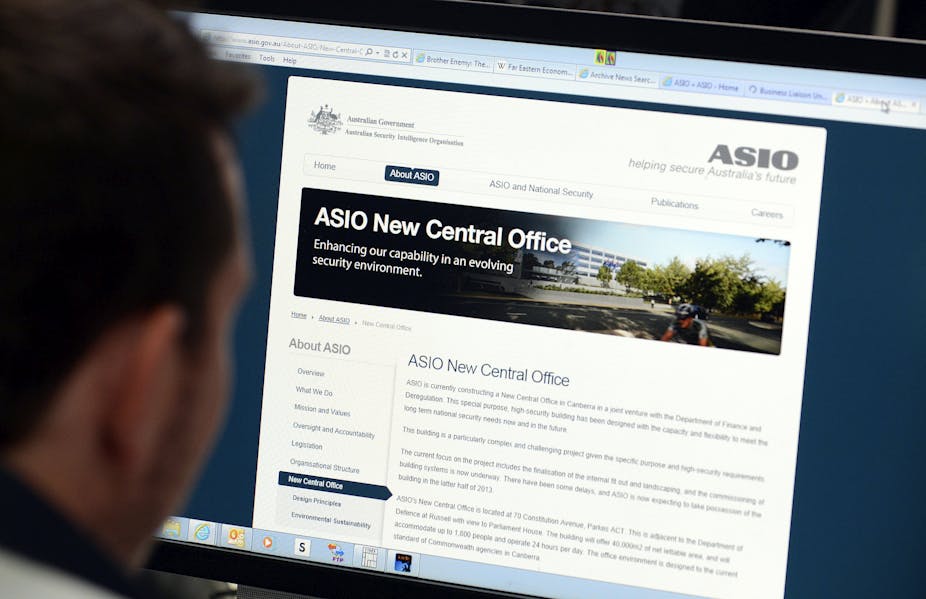Earlier this week, the United States Senate Select Committee on Intelligence released its report on the CIA’s post-9/11 program of detaining and interrogating suspected terrorists during the Bush administration.
As fallout from the report continues, the Australian government should be clear in stating that torture is not acceptable no matter what the national security threat. The express inclusion of torture as prohibited conduct for ASIO officers, the appointment of a new Independent National Security Legislation Monitor (INSLM) to oversee agencies’ use of the laws and a review of the impact of new national security laws are a welcome turn of events in an otherwise panicked year of legislating in this policy area.
The findings on the CIA’s illegal actions and their consequences highlight the fundamental need to subject actions by government agencies to internal and external review.
Torture is never OK
The Australian government terrorist threat level is currently set at “high”. This means that a terrorist attack in Australia is assessed as “likely”.
Despite this threat, it is important to keep in mind the US Senate report’s warning that:
… pressure, fear and expectation of further terrorist plots do not justify, temper, or excuse improper actions taken by individuals or organizations in the name of national security … regardless of the pressures and the need to act, the Intelligence Community’s actions must always reflect who we are as a nation, and adhere to our laws and standards.
ASIO’s new powers and the torture clause
An independent, ongoing and systematic review of Australia’s national security laws is an important safeguard for ensuring Australia never follows the US in producing a report of this kind into the conduct of our nation’s security, intelligence or law enforcement agencies.
With the recent changes to Australia’s national security laws, which raced through parliament in three tranches this year, the need to reflect on what action should be taken to protect against abuses of power has never been more pressing.
For example, take the new provisions in the ASIO Act that enable ASIO officers to be given immunity from criminal and civil liability for actions deemed to have been part of a “special intelligence operation”.
As originally introduced, the National Security Legislation Amendment Bill (No 1) 2014 (Cth) expressly provided that an ASIO officer participating in a special intelligence operation must not engage in conduct that causes death or serious injury, involves a sexual offence against a person, or results in significant loss or damage to property.
The bill did not expressly include torture in the list of prohibited conduct. Attorney-General George Brandis was reluctant to expressly include torture because, in his view, it was not legally necessary. Brandis noted that “torture is against Australian law”. Good sense later prevailed and conduct “that constitutes torture” was inserted into the bill as prohibited conduct.
At the same time that these powers were given to ASIO, the now-infamous Section 35P introduced a broad secrecy offence into the ASIO Act. This provision effectively criminalises attempts by whistleblowers and journalists to report on abuses by ASIO officers of their powers.
Any person who discloses information that “relates to” a special intelligence operation can be punished by five years in jail. There is no public interest defence. The person commits a crime in disclosing the information regardless of whether the disclosure had any detrimental impact on national security.
Watching the watchers
The former independent monitor, Bret Walker, SC, has expressed concern that Section 35P could allow illegal activities by ASIO to remain hidden from view. The government has not yet redressed this concern that illegal conduct by ASIO could remain concealed from parliament, the courts and the public.
Prime Minister Tony Abbott’s announcement earlier this week that he has appointed the Roger Gyles, QC, as the new INSLM was therefore welcome. According to Abbott, Gyles’ first task:
… will be to review any impact on journalists of the section 35P provisions.
Abbott’s decision to appoint an acting INSLM is long overdue. The role has been empty since April this year. It was to be abolished before a government backflip.
It is the INSLM’s function to review whether Australia’s national security laws contain appropriate safeguards for protecting the rights of individuals, remain proportionate to the threat of terrorism or to national security, and remain necessary. An important watchdog function of the INSLM is to assess whether the laws are being used for matters unrelated to terrorism and national security.
Whatever the strict legal need for a ban on torture to be expressly included in the legislation, the law that expressly states that torture is not acceptable behaviour for national security agencies is profoundly symbolic.

